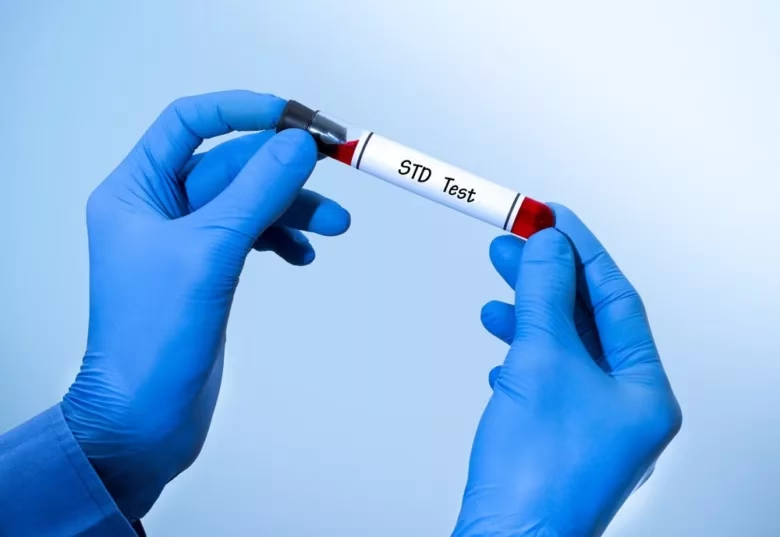STDs affect millions of individuals worldwide, making them a global public health concern. Keeping track of one’s sexual health is of the most vital aspects of maintaining overall health. And to ensure this, one needs to mandatorily get regular STD testing done.
Without treatment, STDs can cause severe complications, including infertility, organ damage, and an increased risk of HIV transmission. The importance of STD testing comes from its role in early detection, prevention, and treatment, allowing individuals to take control of their sexual health.
Educating ourselves and others about the importance of STD testing allows us to protect our sexual health, foster awareness, and support safer and healthier communities. In this blog, we will delve into the power of STD screening, exploring its significance, available testing methods, and the numerous benefits it offers to individuals and society.
How Can STD testing Be Mandated on a Regular Basis?
Performing STD testing is important for individuals, communities, and the health of the public. These factors are:-
- Early Detection: Early detection allows prompt treatment and reduces the risk of complications associated with STDs.
- Prevention: In order to stop the spread of STDs, it encourages preventative measures including the use of condoms and risk-reduction techniques.
- Public Health Impact: Mandating regular testing aids in disease surveillance, identifying high-risk populations, and implementing targeted prevention strategies.
- Reduced Stigma: Testing requirements promote open communication and support for STD testing and treatment.
- Empowerment: Regular testing equips people to take charge of their sexual health, encouraging an active mindset and appropriate behaviour.
- Health Equity: All individuals, regardless of socioeconomic status or healthcare access, have equal access to testing.
- Partner Notification: Regular testing helps break the transmission cycle and safeguard sexual partners by facilitating partner notification and treatment.
- Community Well-being: Health tests help reduce STD prevalence in communities and promote a healthier population in general.
Types of STD Testing

There are different types of STD testing options, each of which caters to certain STIs and personal preferences. Here are some examples of most common STD tests:-
- Blood Tests: Antibodies or antigens linked to specific STDs, including HIV, Syphilis, and Hepatitis, can be found by blood tests. These tests are useful for locating infections and figuring out where a disease is in its progression.
- Urine Tests: For the quick and easy detection of illnesses like Chlamydia and gonorrhoea, urine tests are used. The presence of bacteria linked to the particular infection is checked for in the urine samples taken to the STD testing clinic.
- Swab Tests: Swab tests are used to identify infections like herpes, gonorrhoea, chlamydia, or HPV by obtaining samples from the afflicted location, such as the genitalia, tonsils, or throat. After that, a laboratory does a reliable diagnostic using the swabs.
- Saliva Tests: The detection of various STDs, including HIV, is possible with less frequent saliva tests. They can be practical and less intrusive for some populations.
- Self-Testing Kits: With the aid of self-testing kits, people can gather their own samples at home and submit them to a lab for examination. These kits offer simplicity and privacy, particularly for those who might feel more at ease testing in a familiar setting.
- Physical Examinations: Sometimes a medical professional will perform a physical examination to look for any outward indications of an STD, including genital warts, ulcers, or rashes.
How to Prevent and Treat STDs
Taking personal responsibility, receiving information, and receiving medical treatment are all necessary components of a holistic strategy for preventing and treating STDs. To prevent and treat STDs, consider the following key measures:
Prevention:
- Safe Sexual Practises: Use protective items such as condoms during sexual activity on a regular basis to practise safe sex. This covers both vaginal and anal intercourse as well as oral sex. Condoms serve as a barrier, lowering the risk of STD transmission and acquisition.
- Get Vaccinated: Benefit from the current immunisations for STDs like hepatitis B and the human papillomavirus (HPV). Getting vaccinated can lessen the likelihood of transmission and offer protection from some forms of these illnesses.
- Communication and Education: Communicate openly and honestly with your sexual partners about your sexual history, STD testing, and preventative strategies. Inform yourself and your relationships about the dangers, signs, and treatment of STDs.
- Regular Testing: Test yourself frequently for STDs, especially when you engage in risky sexual activity or have numerous partners. Regular testing aids in early infection detection, allowing for rapid treatment and stopping the spread of the virus.
Treatment:
- Seek Medical Care: Seek medical attention right away if you believe you have an STD or have been exposed to one. Healthcare specialists can administer tests to accurately diagnose the infection and recommend the best course of action.
- Follow Treatment Plans: Follow the treatment regimen that has been recommended by your doctor. Even if your symptoms get better or go away, you should still follow the prescribed dosage instructions and finish the entire course of treatment.
- Partner Treatment: The illness you have should be disclosed to any sexual partners, and you should encourage them to get tested and receive treatment if necessary. To stop reinfection and continued transmission, treating both partners at the same time is crucial.
- Practise Safer Sex: Continue using condoms appropriately and regularly even after a successful course of therapy to practise safe sex. This lessens the possibility of spreading the virus to other people and helps avoid reinfection.
- Regular Follow-Up: Make appointments for follow-up visits with your doctor to discuss any concerns you may have, check on your progress, and make sure the infection has been completely treated.
Avail top-notch STD testing services with Affordable Rapid Testing
Maintaining good health requires regular STD testing. It is a crucial element that aids people in safeguarding their health and halting the spread of illnesses. Regular STD tests has positive effects on relationships as well as physical health, bringing about peace of mind.
If you are looking for a testing center that offers affordable rates, Affordable Rapid Testing is your best option. Taking control of your sexual well-being without compromise is made easy with Affordable Rapid Testing’s affordable and quick services.


